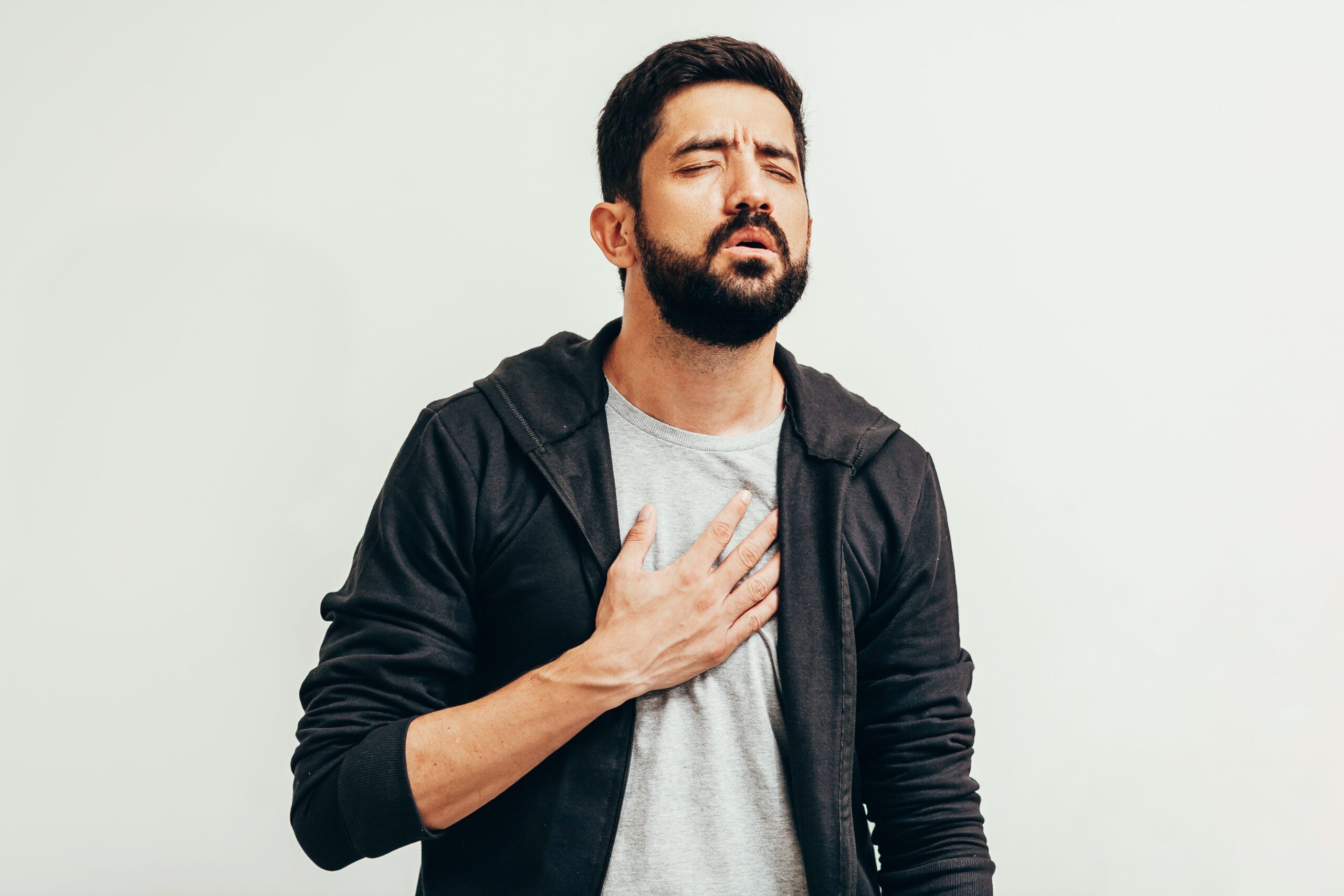Shortness of breath is a common symptom people can experience due to medical and mental health issues. It is important to determine if the cause is related to a medical or mental health issue. There are some key differences and associated symptoms that can help people how to tell if shortness of breath is from anxiety or another cause.
Can Anxiety Cause Shortness of Breath?
Anxiety can cause shortness of breath, as it is one of the common symptoms people can experience. Anxiety is a normal function related to the body’s fight-or-flight response. When faced with highly stressful and anxious situations, the body releases adrenaline and cortisol. This release causes blood pressure and breathing to increase.
Some people may feel like they are finding it difficult to breathe. They may have to take shallow breaths to get more oxygen to slow the fight-or-flight response. Most people can calm down once the stressor has passed.
However, for some people, they can feel anxiety at other times when there is no apparent stressor. When they do, it could trigger shortness of breath.
How to Tell if Shortness of Breath Is from Anxiety
One of the ways of how to tell if shortness of breath is from anxiety is to look for other symptoms associated with anxiety disorders and panic attacks, such as:
- Muscle tension
- Agitation
- Excessive worry
- Irritability
- Uncontrolled shaking
- Dizziness
- Excess sweating
- Problems focusing and concentrating
- Restlessness
- Nervousness
Anxiety will be accompanied by several of these symptoms, along with shortness of breath. Another way to tell if it could be anxiety-related is if shortness of breath subsides and goes away after a short period. In cases where it persists longer or is becoming more frequent, getting a medical examination can help rule out medical causes.
Anxiety Induced Shortness of Breath vs. Other Causes
Some of the symptoms of anxiety-induced shortness of breath could be from other causes and medical conditions. The flu, respiratory infections, and certain strains of COVID can cause shortness of breath. A person could experience:
- Fever
- Nausea
- Vomiting
- Diarrhea
- Chest Tightness
- Wheezing
- Coughing
- Difficulties breathing when standing, sitting, or lying down
In addition, elevated heart rate and chest pain could be a warning sign of a heart attack. So, if these symptoms are occurring with shortness of breath, it is highly recommended to seek medical attention immediately. Emergency medical care should also be sought if there is a bluish color around the lips, fingertips, or toes.
How to Help Shortness of Breath from Anxiety
Several different methods can be used to help alleviate shortness of breath from anxiety. What works for one person may not work for another. So, it is vital to experiment to see which methods work best for you.
Deep Breathing
Taking long, drawn-in breaths and breathing out slowly can help ease shortness of breath. It can slow down elevated heart rates and relax the nervous system. This method should be used until the person feels grounded and no longer anxious.
A variation of deep breathing is the 4-4-4- or 4-7-8 breathing technique. This is where you exhale completely through your mouth, then inhale through your nose while counting to 4. Next, you hold your breath while counting to 4. Then, you exhale through your mouth while counting to 4. You repeat this process until your breathing returns to normal. If you use the 4-7-8 method, you would hold your breath while counting to 7 and exhale while counting to 8.
Meditation/Mindfulness
Closing one’s eyes and centering one’s focus on a specific calming thought, like the sound of a waterfall, while slowing down one’s breathing can help alleviate shortness of breath. Meditation can also be beneficial in releasing muscle tension and other anxiety-related symptoms.
CBT
CBT (cognitive behavioral therapy) is beneficial in helping people uncover anxiety triggers causing shortness of breath. Once the triggers are identified, CBT helps people develop effective coping skills, which could help prevent shortness of breath and other anxiety symptoms.
Exercise
Regular exercise releases natural endorphins, which can help regulate mood and alleviate stress and anxiety. Walking, weight lifting, jogging, cycling, and yoga are all great exercises that can help.
Music Therapy
Music therapy can help alleviate shortness of breath and other anxiety symptoms. While experiencing shortness of breath, play your favorite song and focus on it while allowing everything else around you to fade away. Participating in music therapy at other times can help make it easier to focus and calm down when anxiety is triggered. There are also other types of holistic therapies to be explored to find out which ones work best for you.
Conclusion: How to Tell if Shortness of Breath Is from Anxiety
Anxiety can cause shortness of breath, but so can other medical conditions. However, the person will experience other anxiety-related symptoms, such as excessive worry and nervousness. To determine whether shortness of breath is related to anxiety or a medical condition, it is vital to get a physical examination as soon as possible.
Find Anxiety Treatment in Southern California Today
When your shortness of breath is related to anxiety, help is available at Montare Behavioral Health. We have multiple locations throughout Southern California. Our caring and compassionate team provides comprehensive and personalized anxiety treatment tailored to your unique needs. For further information about our anxiety treatment programs or to schedule an initial consultation, contact us today.







